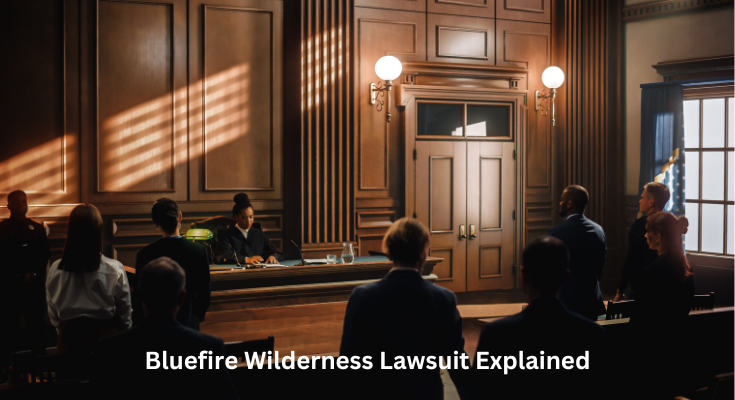Bluefire Wilderness Lawsuit Explained
For parents of troubled teens, wilderness therapy programs like Bluefire Wilderness can seem like a beacon of hope. However, behind the idyllic marketing of healing through nature lies a disturbing pattern of abuse allegations within the wilderness therapy industry. Survivors of certain wilderness therapy programs have reported traumatic experiences, including assault, deprivation, and mistreatment by staff.

Bluefire Wilderness Overview
Bluefire Wilderness offers therapy programs for at-risk teens struggling with substance abuse, behavioral disorders, and mental health issues. The programs aim to achieve behavioral modification through outdoor education and therapy in a wilderness setting. Founded in 2014, Bluefire Wilderness operates programs in Idaho and markets its nature-based experiences as transformative for struggling youth.
Abuse Allegations Leading to the Bluefire Wilderness Lawsuit
Despite the serene images portrayed in marketing materials, Bluefire Wilderness has been haunted by serious allegations of abuse and neglect. Disturbing patterns of misconduct have emerged, contradicting the organization’s claims of providing a safe and supportive environment.
Types of Alleged Abuse in the Bluefire Wilderness Lawsuit
- Physical Abuse: Reports of excessive physical punishment, including forced hikes of over 15 miles daily with heavy packs.
- Deprivation: Denial of basic necessities like food, water, and shelter, leading to dangerous dehydration and starvation.
- Emotional Abuse: Use of humiliation and isolation tactics to control and manipulate participants.
- Medical Neglect: Ignoring life-threatening illnesses and injuries, leading to severe health consequences.
- Invasive Searches: Involuntary strip searches and invasive body searches, contributing to emotional trauma and humiliation.
Legal Rights and Options in the Bluefire Wilderness Lawsuit
If you or a loved one experienced abuse at Bluefire Wilderness, you have several options:
- File a Civil Lawsuit: Pursue financial compensation for damages such as therapy costs and lost wages. An experienced attorney can help you build a case.
- Report to Law Enforcement: Criminal charges may be possible for cases of sexual assault, physical abuse, and neglect.
- Public Awareness: Share your story with journalists and media outlets to raise public awareness and prevent future abuse.
- Seek Therapy: Trauma-focused therapy can aid in healing, and support groups can offer peer support.
Importance of Speaking with a Sexual Abuse Attorney
Trauma-informed attorneys provide critical support to abuse survivors by:
- Understanding applicable laws and legal strategies.
- Investigating thoroughly to gather convincing evidence.
- Handling all interactions with defendants and insurers.
- Offering comprehensive support and guidance through the legal process.
Get Legal Help for Bluefire Wilderness Lawsuit
If you have specific questions about your experience or need legal assistance, get in touch with Helping Survivors. They can connect you with resources and experienced attorneys to help you understand your rights and pursue justice.
FAQs
What is the Bluefire Wilderness lawsuit about?
The Bluefire Wilderness lawsuit involves allegations of abuse and neglect within the Bluefire Wilderness therapy program for teens. Reports include physical, emotional, and sexual abuse, as well as deprivation of basic necessities and medical neglect.
What kind of abuse has been reported at Bluefire Wilderness?
Alleged abuses include excessive physical punishment, denial of food and water, humiliation and isolation tactics, medical neglect, and invasive body searches.
What legal options do survivors of Bluefire Wilderness have?
Survivors can file a civil lawsuit for financial compensation, report incidents to law enforcement for potential criminal charges, share their stories to raise public awareness, and seek therapy to aid in their recovery.
How can a sexual abuse attorney help?
A sexual abuse attorney can help survivors understand their legal rights, build a strong case through thorough investigation, handle all legal interactions, and provide emotional and legal support throughout the process.
Where can I get legal help for a Bluefire Wilderness lawsuit?
Organizations like Helping Survivors can connect you with experienced attorneys and resources to help you understand your rights and pursue justice for the abuse experienced at Bluefire Wilderness.
Conclusion
The allegations against Bluefire Wilderness highlight the urgent need for accountability and reform in wilderness therapy programs. If you or someone you know has experienced abuse at Bluefire Wilderness, understanding your legal rights and options is crucial. Seeking legal assistance can help you pursue justice and prevent future abuse in similar settings.
